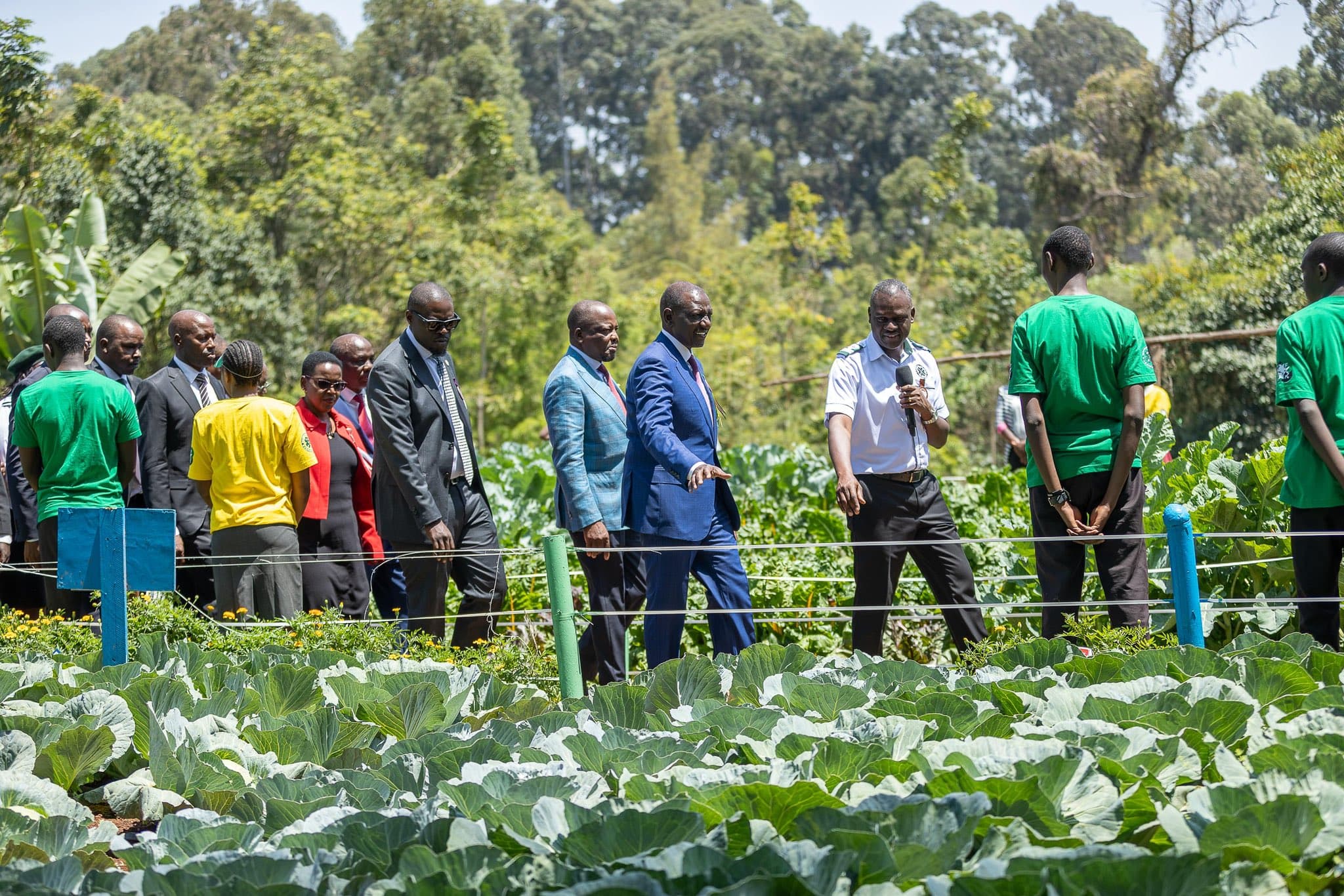We're loading the full news article for you. This includes the article content, images, author information, and related articles.
President William Ruto has mandated an end to Kenya's export of raw agricultural produce, advocating for aggressive investment in value addition and agro-processing to boost farmer incomes and create jobs.

President William Ruto on Wednesday, October 1, 2025, declared that Kenya must cease exporting raw agricultural produce, urging significant investment in value addition and agro-processing. Speaking at the official opening of the 2025 Nairobi International Trade Fair at Jamhuri Park Grounds, the President emphasised that agricultural manufacturing is the next crucial step for transforming the country's largest economic sector.
According to President Ruto, this strategic shift is essential for farmers to earn more substantial incomes, stimulate job creation, and drive stronger economic growth. He highlighted that for decades, Kenya has exported commodities such as tea, coffee, livestock, minerals, cotton, hides, skins, and fish in raw form, only to re-import them as finished products at a premium.
The President explained that the practice of exporting raw materials has consistently denied Kenyan farmers, workers, and entrepreneurs the full value of their labour and innovation, a trend he insists must end. The government plans to reverse this through initiatives like special economic zones, County Aggregation and Industrial Parks (CAIPs), and common user facilities, all aimed at enhancing local production and processing capacity.
These industrial parks are designed to serve as hubs where farmers can access cold storage, warehousing, modern processing facilities, and direct market links, both locally and internationally. This approach is expected to reduce post-harvest losses, eliminate exploitative middlemen, lower logistics costs, and improve farmer earnings.
To support this agricultural transformation, the government is intensifying interventions to boost farm productivity. President Ruto announced that 12.5 million additional bags of fertiliser will be distributed in 2026 across all 1,450 wards, supplementing the 4.5 million bags already supplied for the current short rains season.
These interventions have already shown positive results, with maize output rising to a record 67 million bags in 2024. A projected harvest of 70 million bags is expected this year, and maize imports have decreased by nearly 70 percent, from 9.9 million bags in 2022 to 3.3 million in 2024.
Furthermore, the Kenya Development Corporation (KDC) has secured a KSh 3.7 billion concessionary loan to support tea farmers under the Kenya Tea Development Agency (KTDA). These funds will be used to modernise machinery in smallholder tea factories, lower production costs, and diversify into Orthodox teas to cushion farmers against fluctuating global demand for Black CTC tea. The government is also partnering with the private sector to establish common user facilities in Kericho, Nairobi, and Mombasa, aiming to increase value-added tea exports from the current 5 percent to at least 50 percent in the medium term.
The President's remarks were echoed by other leaders at the trade fair, including Agriculture Cabinet Secretary Mutahi Kagwe, who reiterated the government's commitment to supporting farmers. This focus on value addition is not merely an economic strategy but is seen as a pathway to prosperity for all stakeholders across the value chain.
In a related development, President Ruto also defended the 'Linda Jamii' healthcare initiative, describing it as a more inclusive upgrade to the previous 'Linda Mama' programme. Speaking on Tuesday, September 30, 2025, at Umma University in Kajiado County, he stated that Linda Jamii expands healthcare beyond maternal services to cover the entire family, aligning with efforts to achieve universal health coverage. The Linda Mama programme, introduced in October 2016 by former President Uhuru Kenyatta's administration, focused on providing free maternal health services. Linda Jamii, launched in June 2025 under the Social Health Authority Insurance Programme, covers expectant mothers, their husbands, and other children, including antenatal care, delivery, postnatal care, essential newborn services, and advanced services like ICU and HDU.
The transition to aggressive value addition requires substantial investment in infrastructure, technology, and human capital. Successful implementation will depend on effective coordination between national and county governments, as well as strong partnerships with the private sector. Potential challenges include market access for processed goods, maintaining quality standards, and ensuring fair prices for farmers. The shift also implies a need for robust regulatory frameworks to prevent new forms of exploitation within the value chains.
Specific timelines for achieving the 50 percent value-added tea export target remain to be detailed. The exact costs associated with establishing CAIPs in all 47 counties and common user facilities, along with their funding mechanisms, require further clarification. The long-term impact on global market dynamics for Kenya's processed agricultural products is also an area to watch.
Observers will be keenly watching the progress of the County Aggregation and Industrial Parks, the disbursement and impact of the KSh 3.7 billion loan for tea farmers, and the overall growth in value-added agricultural exports. The effectiveness of the 'Linda Jamii' programme in achieving universal health coverage and its financial sustainability will also be key areas of focus.
Keep the conversation in one place—threads here stay linked to the story and in the forums.
Sign in to start a discussion
Start a conversation about this story and keep it linked here.
Other hot threads
E-sports and Gaming Community in Kenya
Active 9 months ago
The Role of Technology in Modern Agriculture (AgriTech)
Active 9 months ago
Popular Recreational Activities Across Counties
Active 9 months ago
Investing in Youth Sports Development Programs
Active 9 months ago
Key figures and persons of interest featured in this article